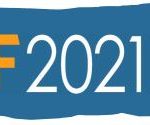How and when we communicate course or unit level information with students can impact their perception of course organisation and management and subsequently their student experience.
The Student Communications Team and Student Experience Champion Mark Ridolfo host a workshop, Effective channels for student course communication, on Tuesday 14 October.
The event will explore a range of channels and how to use them effectively. Topics will include:
- How course communication can impact student experience
- The current communication environment and managing the expectation of your students
- Some effective course communication examples from colleagues across BU, including:
- Text messages (Students Comms Team)
- iBU (Amy Blackham, (Student Communications Manager)
- myBU (Mark Ridolfo, Student experience Champion)
- Facebook and Twitter (Dr Ana Adi, Lecturer in Corporate and Marketing Communications)
- Other social media examples (Jasmine Connolly, Social Media Officer)
- Expert panel discussion / Q&A.
You can find out more and register at the Staff Development and Engagement pages.
Readers of this blog post might also have a particular interest in Julie Northam’s blog post Benefits of research-led learning on the student experience and NSS scores.

 Research communication training day
Research communication training day Call for EoIs: Unit of Assessment (UOA) Impact Champion for UOA 24 to drive REF 2021 preparations
Call for EoIs: Unit of Assessment (UOA) Impact Champion for UOA 24 to drive REF 2021 preparations From spin doctors to social media: The evolution of political communication
From spin doctors to social media: The evolution of political communication










 Beyond Academia: Exploring Career Options for Early Career Researchers – Online Workshop
Beyond Academia: Exploring Career Options for Early Career Researchers – Online Workshop UKCGE Recognised Research Supervision Programme: Deadline Approaching
UKCGE Recognised Research Supervision Programme: Deadline Approaching SPROUT: From Sustainable Research to Sustainable Research Lives
SPROUT: From Sustainable Research to Sustainable Research Lives BRIAN upgrade and new look
BRIAN upgrade and new look Seeing the fruits of your labour in Bangladesh
Seeing the fruits of your labour in Bangladesh ECR Funding Open Call: Research Culture & Community Grant – Apply now
ECR Funding Open Call: Research Culture & Community Grant – Apply now ECR Funding Open Call: Research Culture & Community Grant – Application Deadline Friday 12 December
ECR Funding Open Call: Research Culture & Community Grant – Application Deadline Friday 12 December MSCA Postdoctoral Fellowships 2025 Call
MSCA Postdoctoral Fellowships 2025 Call ERC Advanced Grant 2025 Webinar
ERC Advanced Grant 2025 Webinar Update on UKRO services
Update on UKRO services European research project exploring use of ‘virtual twins’ to better manage metabolic associated fatty liver disease
European research project exploring use of ‘virtual twins’ to better manage metabolic associated fatty liver disease